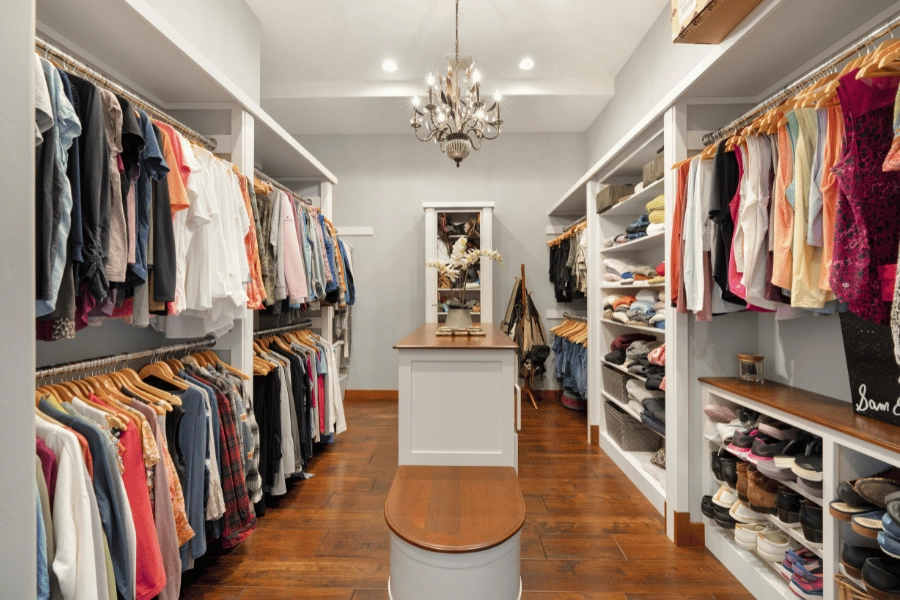Does a Bedroom Need a Closet?
What are the requirements of a bedroom, and does it need a closet? Here is what you need to know about bedroom requirements and expectations.
When touring homes in Raleigh, you've likely encountered rooms that seem like bedrooms but lack closets, or spaces with closets that don't feel like proper bedrooms. This common confusion raises an important question: Does a bedroom actually need a closet to be considered a bedroom?
The answer might surprise you. While closets are practical and desired by most homebuyers, they're not always legally required to classify a room as a bedroom. Understanding these requirements is crucial whether you're buying, selling, or renovating a home in the Triangle area.
Even though you can sleep in any room of a house, specific criteria must be fulfilled for a room to be officially referred to as a bedroom. It is common to prioritize the number of bedrooms when buying a home. Nevertheless, whether the space advertised as a bedroom aligns with widely accepted criteria is worth considering.
Please keep reading to learn more about the requirements of a bedroom.
1. What Legally Defines a Bedroom?
The legal definition of a bedroom varies by state, but most building codes and real estate standards focus on safety, accessibility, and livability rather than storage. In North Carolina, including Raleigh and Wake County, a room typically must meet essential core requirements to be considered a bedroom.
Under the North Carolina Residential Building Code, a room must have at least 100 square feet of floor space, and at least 50% of the room must have a ceiling height greater than seven feet to be classified as a bedroom. Additionally, a bedroom must have at least one window providing adequate daylight.
There must also be a safe exit route in case of an emergency, typically in the form of a door or window, and proper air ventilation, often through the same window used for natural light. It is essential to note that a room can not be classified as a bedroom if it is unsafe or unsuitable for sleeping.
When it comes to access and privacy, the room must have direct access without passing through another bedroom, it has to have the ability to be closed off from other living spaces for privacy, and it needs to be a permanent installation (not a temporary partition).
Legally, a closet is not mandatory for bedroom classification in most areas. Instead, there is an emphasis on safety and habitability factors over storage requirements.
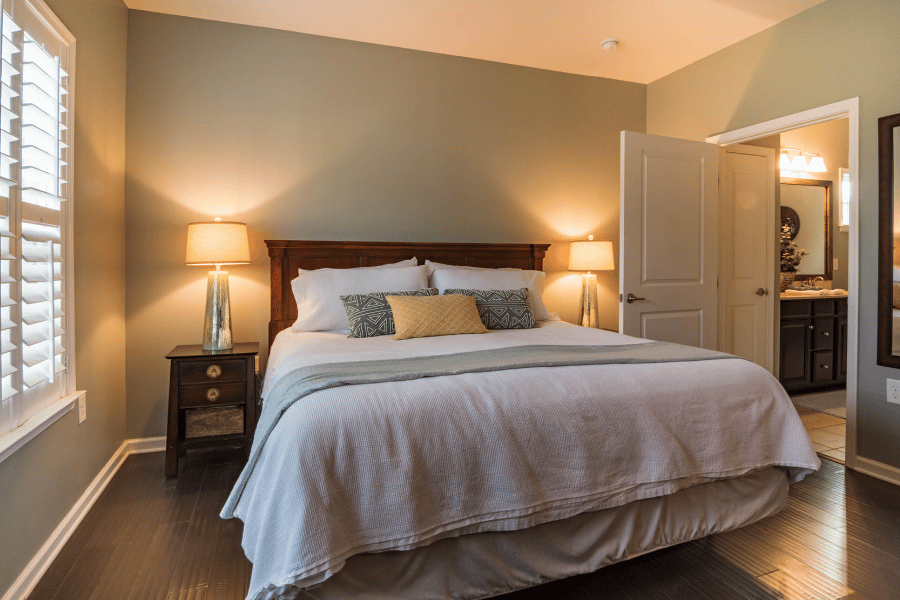
2. Understanding Bedroom Requirements in Detail
Beyond the basic legal requirements, several factors determine whether a room can function effectively as a bedroom. This is very important to consider during the home-buying process.
Size and Layout Considerations: The room must be large enough to accommodate a bed and allow for reasonable movement around it. While 70 square feet is often the minimum, most people find rooms under 100 square feet cramped for bedroom use. The room's shape also matters, especially if you want your home to be handicap accessible.
Window Requirements: The window serving a bedroom must meet specific standards. It should open from the inside without tools, have a minimum opening width of 20 inches and height of 24 inches, and the window sill cannot be more than 44 inches from the floor. There must also be a minimum of four square feet of net clear opening area. This ensures the window can serve as an emergency exit if needed.
Electrical and HVAC: Bedrooms need adequate electrical outlets (typically at least one per wall or every 12 feet) and proper heating/cooling. The room should maintain comfortable temperatures year-round and have sufficient electrical capacity for typical bedroom needs like lighting, electronics, and small appliances.
3. What Constitutes a Closet?
When discussing bedroom closets, it's essential to understand what qualifies as a closet versus other storage solutions. A closet is typically a small, enclosed space with a door within a building where clothes, linens, or other household items are stored.
Fitted closets are built into the house's walls, leaving no apparent space in the room. They may also be made under stairs or in unused, awkward areas. Having a closet lets people use additional space for what they need, and if there is no closet, you have to plan the distance you will use as closet space.
Here are different types of closets:
Traditional Closets: A built-in closet is a permanent storage space with walls, a door, and typically a rod for hanging clothes. These are constructed as part of the home's original design or added during renovations with proper permits.
Walk-in vs. Reach-in: Walk-in closets allow you to step inside the storage space, while reach-in closets require you to reach in from the doorway. Both serve the same functional purpose, though walk-ins are generally preferred for their accessibility and storage capacity.
Alternative storage solutions like armoires, wardrobes, and built-in cabinetry can provide functionality similar to traditional closets. While these might not satisfy a buyer's expectation of a "closet," they can serve the same practical purpose.
Several factors should be considered when choosing between a built-in closet and a wardrobe. The most significant factors are space and cost. A built-in closet will give you more space, but a wardrobe will leave you with less square footage for other things.
Temporary storage solutions like freestanding closet organizers or storage that blocks windows or exits typically do not count as proper closets for real estate purposes.
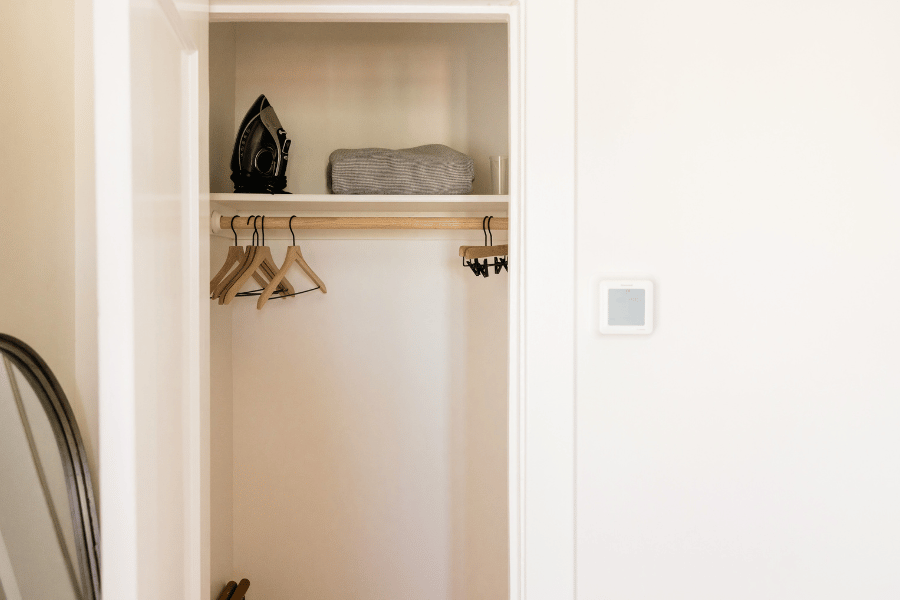
4. Does a Bedroom Require a Closet?
While some local markets may require a closet to consider a room a bedroom, most states do not mandate built-in closets. It is essential to understand the laws in your area, as they vary widely. However, by national standards, a room can be considered a bedroom without a closet.
There are exceptions to the closet rule depending on the area, making it challenging for sellers. However, when selling a house, it is crucial to understand and comply with the legal requirements for a bedroom. Some people may describe a room as a bonus space or office if it does not meet the requirements for a bedroom.
Legally, there is no way to prohibit someone from using a space as a bedroom. However, for safety reasons, a bedroom must meet specific criteria. It is best to be honest about the number of bedrooms in a home, as buyers often have vivid imaginations. Misrepresenting a house's number of bedrooms can ultimately harm the seller.
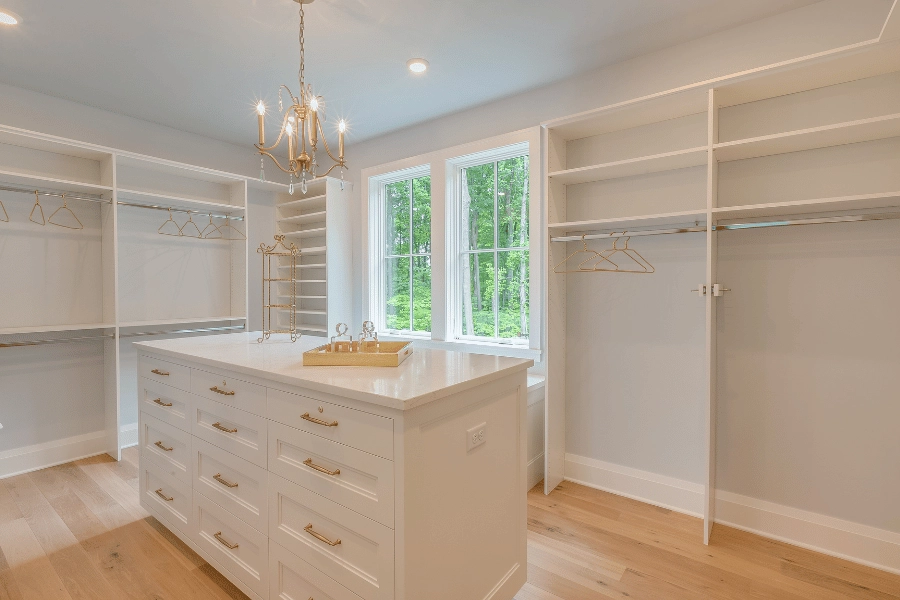
5. Can You Convert a Room to a Bedroom by Adding a Closet?
Many home sellers wonder if they can list an extra bedroom by adding a closet. However, the answer is not that simple. Although the seller can add a closet, the County records show the home's legal requirements.
Many homeowners get confused about this. Adding a closet to a room does not automatically make it a bedroom. The room must first meet all the fundamental bedroom requirements listed earlier.
Adding a closet would require contacting the county and getting a permit to reclassify the house before listing it on the market. While having a closet in a bedroom does not harm the house listing, it can decrease the chances of a successful sale. If the seller still wants to add a closet, they should comply with the legal requirements.
If a room already meets size, window, egress, and access requirements, adding a closet can make it more marketable and functional as a bedroom. This is particularly valuable in older homes where rooms were designed before modern storage expectations.
Simply installing a closet won't transform a basement room without proper egress, a windowless den, or an undersized space into a legal bedroom. First, the fundamental safety and habitability requirements must be met.
Converting a non-bedroom space into a bedroom often requires permits, especially if modifying electrical, plumbing, or structural elements. Check with Wake County or your local municipality before beginning conversion projects.
Putting your house on the market involves many considerations. This can be overwhelming, so it's essential to have a trustworthy real estate agent guide you through the process.
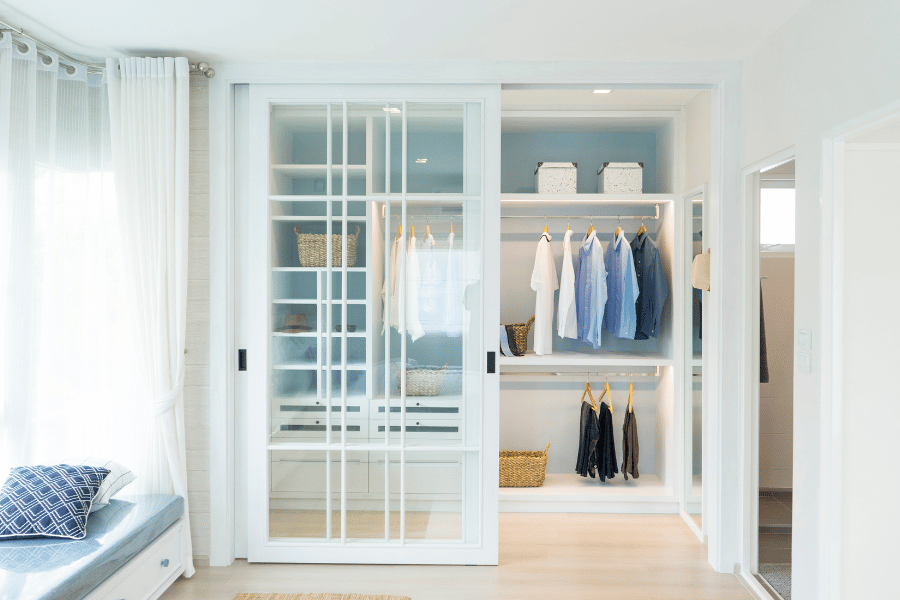
6. Listing a Home
Selling a home can be a complex process, and it's essential to approach it carefully, especially if you're working with an agent. By taking the necessary steps, you can ensure that the process goes smoothly and that you achieve the best possible outcome in the long run.
While some aspects of selling a home may seem like common sense, such as cleaning, decluttering, repairing, and taking good photos, many other factors must be considered.
For example, you must be aware of legal requirements regarding the number of bedrooms and bathrooms you can list. These requirements can vary depending on your area, so it's crucial to do your research.
Overall, selling a home can be challenging, but taking the proper steps will ensure a successful outcome.

7. The Reality for Homebuyers and Sellers
Most modern homebuyers expect bedrooms to have closets. While a bedroom without a closet may be technically legal, it could be harder to sell or might sell for less than comparable homes with proper bedroom storage.
Home appraisers may consider the absence of closets when evaluating bedrooms, potentially affecting the home's appraised value. However, they'll focus primarily on the legal bedroom requirements when counting bedrooms for valuation purposes.
Most new-construction homes typically include closets in all bedrooms as a standard feature, reflecting current buyer expectations and builder practices.
Whether you're buying or selling, understanding bedroom and closet requirements helps you make better decisions:
For Sellers:
- Accurately represent rooms in your listing to avoid disappointing buyers
- Consider adding closets to rooms that meet other bedroom requirements if budget allows
- Highlight alternative storage solutions in bedrooms without traditional closets
- Consult with your real estate agent about how to best market rooms that blur the bedroom definition
For Buyers:
- Don't dismiss homes with bedrooms lacking closets if they otherwise meet your needs
- Factor in the cost of adding storage solutions when evaluating offers
- Verify that advertised bedrooms meet local requirements for safety and egress
- Consider how the lack of closets might affect future resale value
Methodology
Data was sourced from the Office of State Fire Marshall and the Town of Apex to determine if a bedroom is required to have a closet.
FAQS
Can a room be considered a bedroom if it doesn't have a closet?
While there may be different opinions on the matter, it is essential to note that, by legal requirements for bedrooms, a closet is not mandatory for a room to be classified as a bedroom. This is the case in the majority of states.
What is the code for a bedroom in North Carolina?
A room can be considered a bedroom if it has an area of at least 100 square feet, has a window or door leading outside, and at least 50% of the room has a ceiling height greater than seven feet.
What counts as a closet in a bedroom?
A closet is a small room or chamber specifically designed for storage purposes. This can include a built-in closet with ample space for clothes and storage or a standalone wardrobe.
Can any room be used as a bedroom?
Several indicators must be considered when deciding if a room can be used as a bedroom. Typically, people look for a space large enough to accommodate a standard bed and have a means of exit.
These are some of the most common things to look for when determining if a room can be designated as a bedroom. Even smaller spaces like attics can be transformed into bedrooms.
Does a Bedroom Require a Closet? - The Bottom Line
A bedroom does not legally require a closet in most jurisdictions, including Raleigh and Wake County. However, closets are highly desirable features that most buyers expect and can significantly impact a home's marketability and value.
The key is understanding that bedroom classification depends primarily on safety, size, and accessibility requirements rather than storage features. A room with proper windows, egress, size, and access can be a legal bedroom without a closet, though it may be less appealing to buyers and potentially more challenging to sell.
If you are moving to Raleigh and have questions about bedroom requirements, contact the experts at Raleigh Realty.
